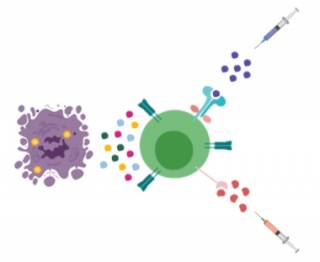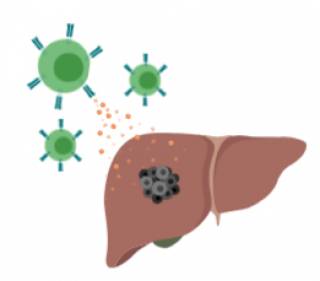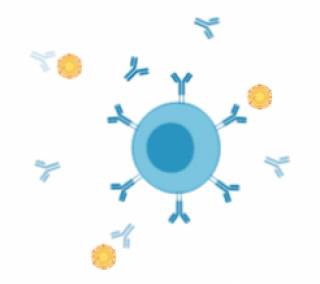Chronic HBV infection
Around a third of the world's population are estimated to have been exposed to hepatitis B virus (HBV) and approximately 257 million people have chronic infection. Our work is focused on understanding how to boost the body's natural immune defenses, in order to control infection for a 'functional cure', without the need to take long-term antiviral medication. We think that this is achievable since many adults who get infected with HBV naturally develop an immune response that controls the virus successfully for the rest of their lives.
In order to develop safe approaches for this kind of immunotherapy, we need to do detailed studies on the immune responses of individuals with acute/resolved or chronic HBV infection.
Prof. Mala Maini has led a research group at UCL working on HBV for the last 17 years. Blood samples from patients with hepatitis B are crucial for research, especially repeated samples from patients over time.
How we use your samples
Human blood is full of white blood cells that can fight viral infection. Two of the key white blood cells involved are T cells – that eliminate virally infected cells – and B cells – that produce protective molecules, called antibodies. We can identify several types of cells from a single blood sample using a technique called flow cytometry.
Recent research from the lab


We have recently started to use similar approaches to boost the function of immune cells from patients with liver cancer. We block negative signals and supply the immune cells with crucial nutrients and activating signals to boost their function and to enhance their potential to fight the tumour.
Patients with chronic HBV infection also don’t produce enough protective antibodies that can help to clear the infection. Recent work in the Maini Lab analysing B cells in the blood of patients with chronic HBV, has begun to investigate ways in which we can target B cells to boost the amount of antibodies they can produce, and provide long-lasting protection against the virus (Burton…Maini et al., Journal of Clinical Investigation 2018).

 Close
Close

